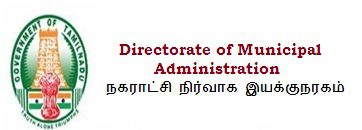Livelihood security for the urban poor by providing skill and employment opportunities, housing and basic amenities.
Deendayal Antodaya Yojana – National Urban Livelihoods
Mission (DAY-NULM)
Under the Shelter for Urban Homeless component of DAY-NULM, 184 shelter units have been sanctioned through four project sanctioning committee meetings held upto December 2017 for an estimated cost of Rs.68.12 Crores. These includes 35 shelters (20 normal shelter and 15 special shelters as short stay homes in District and Taluk head quarter hospitals) announced by the Hon’ble Chief Minister of Tamil Nadu under Rule.110. So far 115 shelters have been completed and the remaining 69 shelters are under various stages of progress.
Under the scheme of Support to Urban Street Vendors component of DAY-NULM, 1,16,431 street vendors through field survey have been identified and ID cards have been issued to 80,667 vendors. The Town Vending Committee in all Corporations and Municipalities except Chennai has been formed. Regarding Town Panchayats, 34 out of 528 Towns have formed Town Vending Committee and the remaining will be formed during 2018-19.
Swarna Jayanti Shahari Rozgar Yojana (SJSRY)
Funds under the Swarna Jayanti Shahari Rozgar Yojana, a Centrally Sponsored Scheme, is being utilised to ensure gainful employment to urban poor self-employment and wage employment ventures. The scheme is funded by the Government of India and the State Government in the ratio of 75:25. For the year 2012-13, an amount of ₹99.74 crore has been sanctioned for implementing the scheme in all urban Local Bodies. The scheme has the following sub components: –
It enables individual urban poor to set up gainful self-employment ventures by providing subsidized credit, besides technology, marketing, infrastructure, knowledge and other support to them.
Under this component, subsidised credit is provided to groups of urban poor women to set up gainful self-employment ventures and also a revolving fund for Self Help Groups / Thrift and Credit Societies formed by urban poor women.
This component focuses on providing assistance for skill formation/ upgradation of the urban poor to enhance their capacity to undertake self-employment as well as access to better salaried employment.
This component aims at utilising the labour of the urban poor for the construction of socially and economically useful public assets.
The UCDN relies on establishing and nurturing community organizations and structures like Neighbourhood Groups (NHGs), Neighbourhood Committees (NHCs) and Community Development Societies (CDSs) that facilitate sustained urban poverty alleviation.

Under Urban Community Development Network (UCDN), so far 80956 Neighbourhood groups (NHG), 9364 Neighbourhood Committees (NHC) and 780 Community Development Societies (CDS) have been formed and functioning effectively.
In the first phase, a slum survey has been conducted in 34 ULBs having a population of more than 100000 and completed in 33 ULBs covering 1963 slums and 413000 slum households. Further, in the second phase, survey has been taken up to cover 60 ULBs, each with a population ranging between 40000 to 100000 at an overall estimated cost of ₹2.62 crore and is in progress.
The Tamil Nadu Urban Livelihood Mission (TNULM) was launched with an allocation of ₹200 crore during 2012-13. The Mission will focus on livelihood security for the urban poor by providing skill and employment opportunities, housing and basic amenities, universal access to health and education, social mobilization and special homes for vulnerable groups like street children and urban homeless, etc. It will lay special emphasis on inclusive policies involving women, destitute and differently abled persons by dovetailing ongoing sectoral programmes.
